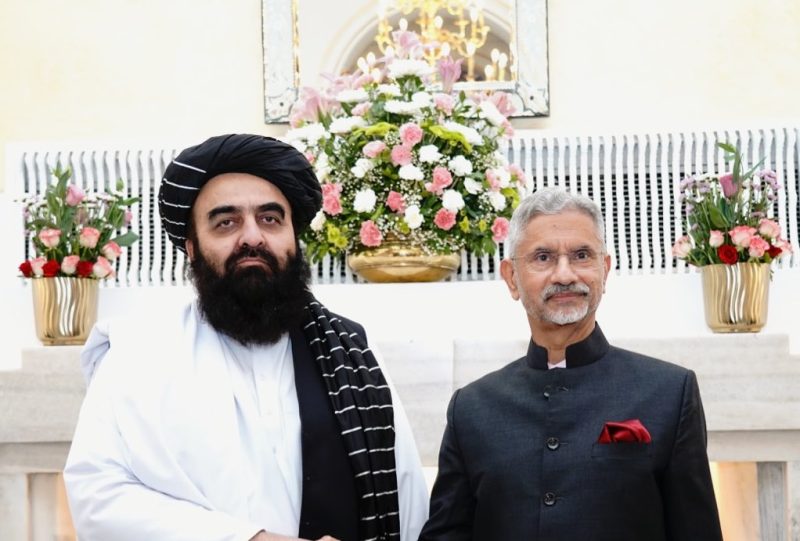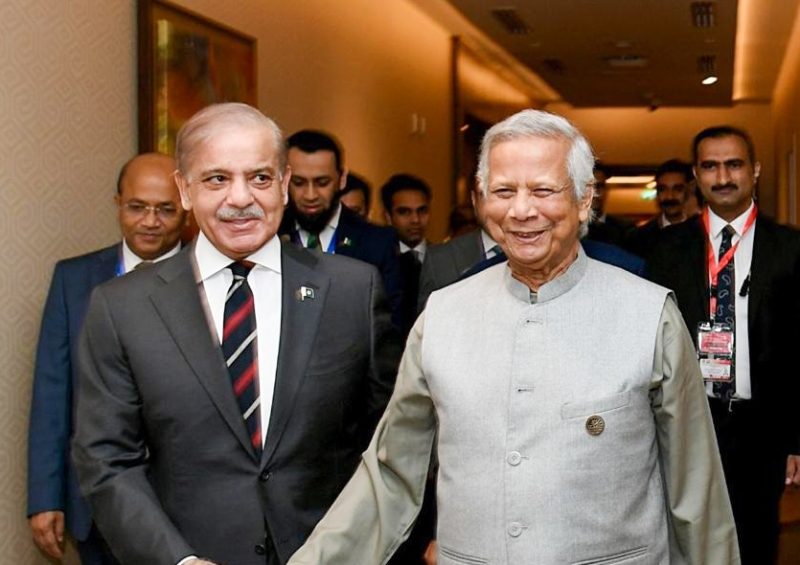Images of the ensuing crackdown were nothing short of dystopian – cities blanketed in tear gas, bloodied protesters being ferried away, cutting of internet, armed personnel brutally restraining and arresting civilians … writes Dr Sakariya Kareem
The scenes of chaos and violence unfolding in Pakistan-occupied Kashmir (PoK) over the past week have shattered the illusion of the territory being “Azad” or “Free” Kashmir. As protests over economic grievances swelled across the region, Pakistan’s security forces responded with unchecked brutality, killing at least one police officer, injuring over 100 others, and subjecting civilians to tear gas shelling, baton charges, and mass arrests.
The underlying issues that sparked the protests – soaring food and fuel inflation, lack of economic opportunities, unaffordable electricity rates in the midst of vast hydropower potential – are systemic problems plaguing Pakistan as a whole. However, the state’s draconian response underscored the hollowness of PoK’s constitutional designation as “Azad” Kashmir. There was nothing free about the unrestrained suppression of dissent on display.
At the forefront of the protests was the Jammu Kashmir Joint Awami Action Committee (JAAC), a grassroots organization representing traders and citizens demanding affordable electricity rates linked to PoK’s hydropower generation, subsidized wheat to combat rising food prices, and an end to lavish privileges for the ruling elite class. Their demands highlighted the gaping disconnect between the government and the economic pain being endured by ordinary citizens. Rather than seek a peaceful resolution through negotiation and reforms, the Pakistani authorities chose an all-too-familiar strongarm approach. Police conducted overnight raids to detain around 70 JAAC activists in the lead-up, eliminating key voices from the equation. When the JAAC still proceeded with plans for a massive march on the PoK capital Muzaffarabad on May 11, the state dug trenches and erected barriers to seal off access to the city.
Images of the ensuing crackdown were nothing short of dystopian – cities blanketed in tear gas, bloodied protesters being ferried away, cutting of internet, armed personnel brutally restraining and arresting civilians.[2] The violence reached a tragic nadir when a police sub-inspector named Adnan Qureshi was killed by gunfire amid the melees in Mirpur. While the exact circumstances remain unclear, his death exemplified the perpetual cost of Pakistan’s reflexive deployment of force as a crowd control tactic.[3]
The hypocrisy is staggering – how can any state brutalize its own civilians and deny them basic political and economic rights, while proclaiming itself a champion for the self-determination of the same population? Pakistan’s rhetoric about being a torchbearer for Kashmir cause rings hollow when its iron fist falls on the very people it claims to represent in PoK.
As the crackdown intensified, pro-independence voices within PoK grew more vociferous in their condemnation of Pakistan. Activist Amjad Ayub Mirza declared “The whole of Pakistan-occupied Jammu Kashmir has been shut down by peaceful protesters who are being beaten up and shot at by the Pakistan police, Punjab police, the so-called Azad Kashmir Police.” His words underscored a fundamental reality – that segments of PoK’s population no longer view Pakistan as a credible advocate for their aspirations, having witnessed its oppression firsthand. Mirza went so far as to call for external intervention “to help and facilitate the independence of this occupied territory, including Gilgit-Baltistan.” The extraordinary plea signaled the fading credibility of Pakistan’s position.
If Pakistan still harbors any credibility on the Kashmir issue, it must embark on an urgent course correction in how it governs PoK. An immediate de-escalation, release of all political prisoners, substantive engagement with groups like JAAC to address economic woes, and rolling back regressive policies that preference the elite are paramount. Mere cosmetic concessions will not solve the crisis. Pakistan needs to overhaul its entire system of governance in PoK to make it truly representative and inclusive of the population’s voices. Dissenting views and calls for greater rights must be accommodated through reforms, not met with violent suppression that betrays the territory’s nominal status of being “free.”
The current protests follow a well-trodden path in PoK of the state mobilizing force to crush any semblance of dissent as an existential threat.[4] Hundreds have been subjected to enforced disappearances, extrajudicial killings, torture and mass intimidation by Pakistan’s military-intelligence apparatus for demanding self-governance or representation. For over 75 years, Pakistan has claimed to be a champion of the Kashmiri people’s rights to self-determination. Yet its actions in PoK over the past week, and throughout its occupation, have demonstrated that it remains the principal force subjugating the population it claims to liberate.
By deploying violence to deny the JAAC’s basic economic demands, Pakistan has ceded what little moral high ground it had on the Kashmir issue. Images of its oppression in PoK have been broadcast globally, inviting the same degree of condemnation that any state would for violating human rights and civil liberties so brazenly. The path forward for Pakistan is clear – it must pursue substantive reforms to grant real rights and representation to PoK’s people. Restoring civil liberties, ensuring inclusive economic development, and allowing the territory’s population to have a voice in its governance and future are essential.
Failing to course-correct will only further diminish Pakistan’s already declining credibility as a stakeholder in resolving the Kashmir dispute. The divided region has endured a multigenerational tragedy of lifetimes being stifled by violence, insecurity, and oppression from all sides. Inflicting more state brutality on the people of PoK is a disservice to the dreams of self-determination and azadi (freedom) that Kashmir has embodied globally. By doubling down on suppression in PoK, Pakistan will only reaffirm why global skepticism around its position on Kashmir continues to grow. Respecting the rights and aspirations of those under its occupation is not an option, but an imperative if Pakistan wants to have any legitimate stance on the issue going forward. The illusion of “Azad” Kashmir has been shattered – the path to restoring credibility must begin now.









